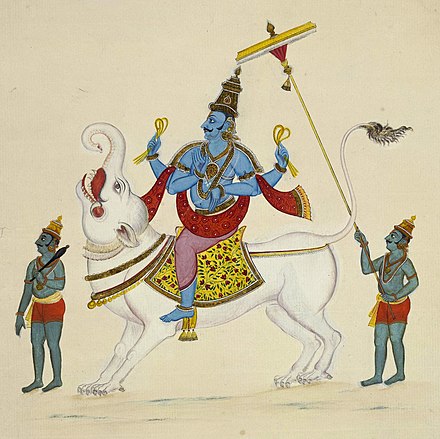BARANA (VARUNA) There are many Baranas….. (Sarag M. 5, p. 1236) He is the god of ocean and sovereign of waters. He carries a noose called Naga-Pasa for binding offénders. His favourite resort is Pushpa-girl (flower-mountain) and his city is Vasudha-nagara. He is one of the oldest of the Vedic deities.
References :
1. Kohli, Surindar Singh, Dictionary of Mythological References in Guru Granth Sahib, 1993
The Significance of Varuna in Hindu Mythology
Varuna holds a prominent place in Hindu mythology as the deity of water, oceans, and the cosmic order, known as Rta in Vedic traditions. His significance transcends the physical realm, embodying profound spiritual and philosophical dimensions that have shaped ancient Indian thought and culture.
- Guardian of Cosmic Order
Varuna is revered as the enforcer of Rta, the universal law governing existence. His role as the protector of this law underscores the belief in an interconnected and harmonious universe. Varuna’s association with justice and truth serves as a reminder of humanity’s duty to align individual actions with the principles of ethical integrity. He exemplifies the idea that cosmic balance is maintained through righteousness and moral behavior. - The Omniscient Observer
In Vedic hymns, Varuna is described as all-seeing and omnipresent, a divine watcher who oversees the deeds of all beings. This representation inspires philosophical reflections on accountability and introspection. His symbolic noose, used to punish wrongdoers, highlights the concept of divine justice—impartial and inevitable. Varuna’s omniscience compels individuals to act responsibly, knowing that no deed goes unnoticed in the moral tapestry of the universe. - The Power of Water
As the god of water, Varuna embodies life’s nurturing and purifying qualities. Water symbolizes creation, sustenance, and renewal—forces essential for existence. In Hindu rituals, water is used for cleansing and spiritual purification, reflecting Varuna’s influence as the source of vitality and spiritual transformation. His dominion over water connects him to the cycles of nature and the eternal flow of life. - Ethical and Spiritual Guide
Varuna’s hymns in the Rigveda emphasize truth, mercy, and adherence to ethical principles. He is not just a god of natural elements but a moral guide encouraging humanity to seek truth and avoid deceit. His significance lies in his ability to transcend the material world and offer lessons on maintaining harmony between the divine and human realms. - Reverence in Rituals
In Vedic rituals, Varuna is invoked for blessings of rain, prosperity, and forgiveness for sins. His presence in ancient prayers highlights the belief in divine grace and the possibility of redemption. Through Varuna, worshippers seek to restore balance in their lives and nurture their spiritual growth.
Conclusion
Varuna’s significance in Hindu mythology goes beyond his identity as a deity. He represents the eternal interplay between physical forces and moral principles, offering a profound understanding of the cosmos and humanity’s place within it. As the protector of truth and cosmic order, Varuna continues to inspire reflections on justice, accountability, and the quest for spiritual harmony in the complex tapestry of existence.






